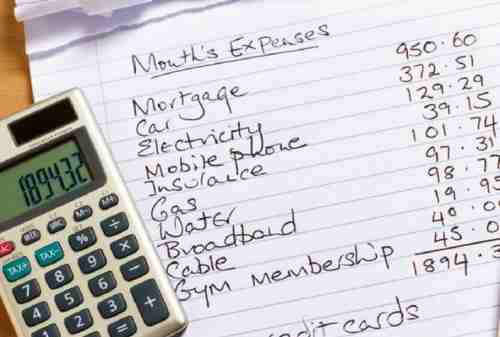Planning your budget is essential for your life. Find out why and how to apply it on your own finance here.
Planning Your Finance
Planning is essential both personally and professionally. It helps us achieve our goals, and allows for more efficient use of time and other resources.
Planning means analyzing and studying the objectives, as well as the way in which we will achieve them.
“Budgeting, ultimately, considers what you do with your money.
Budgeting focuses on immediate money issues.
Financial planning, on the other hand, considers what you can be with your money.
Financial planning considers your entire life.”
Budgeting is an incredibly important financial strategy. It evaluates how much you make, measures how much you spend, and helps you spend less than what you bring in.
Financial planning looks at your current financial state and builds a comprehensive portfolio by predicting future cash flows, asset values and withdrawal plans based on information that’s currently available.
A business needs to have both a strategic plan and a budget. The strategic plan lays out the direction and goals of the business and guidelines for actions to achieve those goals, while the budget looks at the money needed to support achieving those goals.
Budgeting is only one part of the strategic planning process.
Since budgeting allows you to create a spending plan for your money, it ensures that you will always have enough money for the things you need and the things that are important to you.
Following a budget or spending plan will also keep you out of debt or help you work your way out of debt if you are currently in debt.
So by design, the plan comes first. The very first budget for an organization is typically a “zero-based budget” (ZBB), in which each cost is justified against a specific goal.
Preparation of a true ZBB is more complex and time-consuming than cost-based budgeting, so it may not be feasible to perform every year.
Here are 5 factors to think about as you prepare your budget:
- Your Income The way in which moneycomes into your income statement is critical for planning cash flow.
- Your Spending Habits.
- Your Use (or Not) of Credit & Debt.
- Your Tech Savvy.
- Your Personality.
Budget planning entails identifying the sources of income and taking into account all current and future expenses, with an aim to meet an individual’s financial goals. The primary aim of a budget planner is to ensure savings after the allocation for spending.
Budget is an important concept of microeconomics and can be understood as an organizational plan stated in monetary terms.
Business start-up budget, corporate budget, event management budget, government budget and personal or family budget are some variations of this concept.
[Read Also: Here Are 21 Simple Strategies on Saving Money to Reach Financial Goals]
Budget Planning: Making Ends Meet
In a personal or family budget, the sources of all income (inflows) are identified and the expenses or outflows are planned for. The final plan seeks to match the outflows to inflows.
The equation that restricts an individual or a household from spending more than the available resources is known as budget constraint.
How is Budget Planning Done?
By following good budgeting strategies, one can ensure the successful management of his or her expenditure and the recording of savings so that investments may be made for securing one’s future. Increased life expectancy has raised the amount of money one requires after retirement.
This means that there is a need for increased retirement savings, while most people are living paycheck to paycheck or depending on credit card debt (which has a high interest rate) to raise their standard of living. Thus, there is a growing need for effective personal budget planning.
How to Plan a Budget
- Calculate your income. This should include income from all sources, including your paycheck and interest from any investment.
- Determine your bill for essentials. List out your essential expenses, which may include rent, grocery, clothing, telephone and electricity bills and gas and car maintenance. Calculate the amount spent on each.
- Determine your debt elimination. Note down your total debts, including interest payments on the same.
- Determine your bill for non-essentials. Your list of non-essentials may include vacations, gifts and trips to restaurants. Calculate the amount spent on each.
- Calculate your saving This is done by subtracting the figure obtained by adding steps 2, 3 and 4 from the figure obtained in step 1.
Budget planning has the following shortcomings:
- Excessive emphasis on savings may affect the quality of life.
- If the budget is planned too tight, adherence to it may become an issue.
Budgeting is almost guessing and putting limits that one cannot be sure he/she would not pass. Budget planning is a step of the project where the employee must adapt and work towards solving an issue and trying to solve goals with the best fit possible.
Budget planning can be compare to a game as such matter where game you are playing against all odds to take your team to winning, having a strategy and knowing your team’s limitations and potential can make this goal seem easier.
In budget planning this idea is applicable since the team will built their strategy to stay on budget and keep achieving the goals, knowing one’s financial limitation and all resources (potential) will help budgeting seem easier.
What are the steps in the budgeting process?
- Set Realistic Goals.
- Identify your Income and Expenses.
- Separate Needs and Wants.
- Design Your Budget.
- Put Your Plan into Action.
- Seasonal Expenses.
- Look Ahead.
Budgets are necessary to highlight the financial implications of plans, to define the resources required to achieve these plans and to provide a means of measuring, viewing and controlling the obtained results, in comparison with the plans. Also, the budget can prevent imminent issues.
Benefits of Budget Planning
Some of the major advantages of budget planning are:
- It puts checks or balances in place in order to prevent overspending at various levels.
- Takes into account the unexpected need for funds.
- Helps one maintain his/her standard of living post retirement.
Above all else, the key to a successful budget is consistency. Since budgeting is a long-term process, the more consistently you log your expenses, assess your progress toward your financial goals, and look for ways to reduce wasteful spending, the more benefit your budget will have on your financial life.
You can use our app, Finansialku, to help you do your budgeting. Finansialku is an Indonesian based financial planning app that could help you managing your personal or family funds.
Download it now!
References:
- June 29th 2010. Budget Planning. Economywatch.com – https://bit.ly/3nx4C16
- Kim Petch. July 11thYour Budget: 5 Factors That Will Determine What It Looks Like. Maplemoney.com – https://bit.ly/3eAISwZ
- What’s The Difference Between Budgeting and Financial Planning? Mcleanam.com – https://bit.ly/3dS1RUP
Pictures:
- https://bit.ly/3gChP7k
- https://bit.ly/2Qrqa3b
dilema besar





